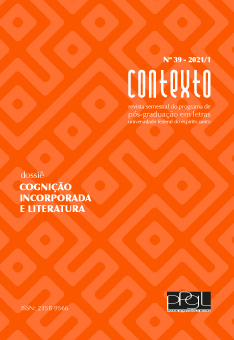Who Nose Best? A Sensory-Ethical Approach to Aldous Huxley’s Eyeless in Gaza
Abstract
ABSTRACT: This article aims to demonstrate that Aldous Huxley’s Eyeless in Gaza is as much of an exemplary memory novel as such widely recognized specimens of the subgenre as James Joyce’s, Virginia Woolf’s, or William Faulkner’s relevant works and, above all, Marcel Proust’s In Search of Lost Time. Through a careful comparison of Huxley’s mid-career Bildungsroman with parts of Proust’s celebrated novel-sequence, this contribution to the special issue of Contexto proposes to show how the employment of the methods and concepts of cognitive literary studies supplemented with relevant insights of ethical criticism can enhance our understanding of how literature and science complement each other. In the conclusion it is proposed that if Proust was a neuroscientist of the beautiful, then Huxley can be seen as the cognitive scientist of the good, and both of them as seekers after the true.
KEYWORDS: Huxley. Proust. CLS. Olfaction. Ethical criticism.
Downloads
Downloads
Published
Issue
Section
License
Copyright (c) 2021 Ákos Farkas

This work is licensed under a Creative Commons Attribution-NonCommercial 4.0 International License.

Este obra está licenciado com uma Licença Creative Commons Atribuição-NãoComercial 4.0 Internacional.





